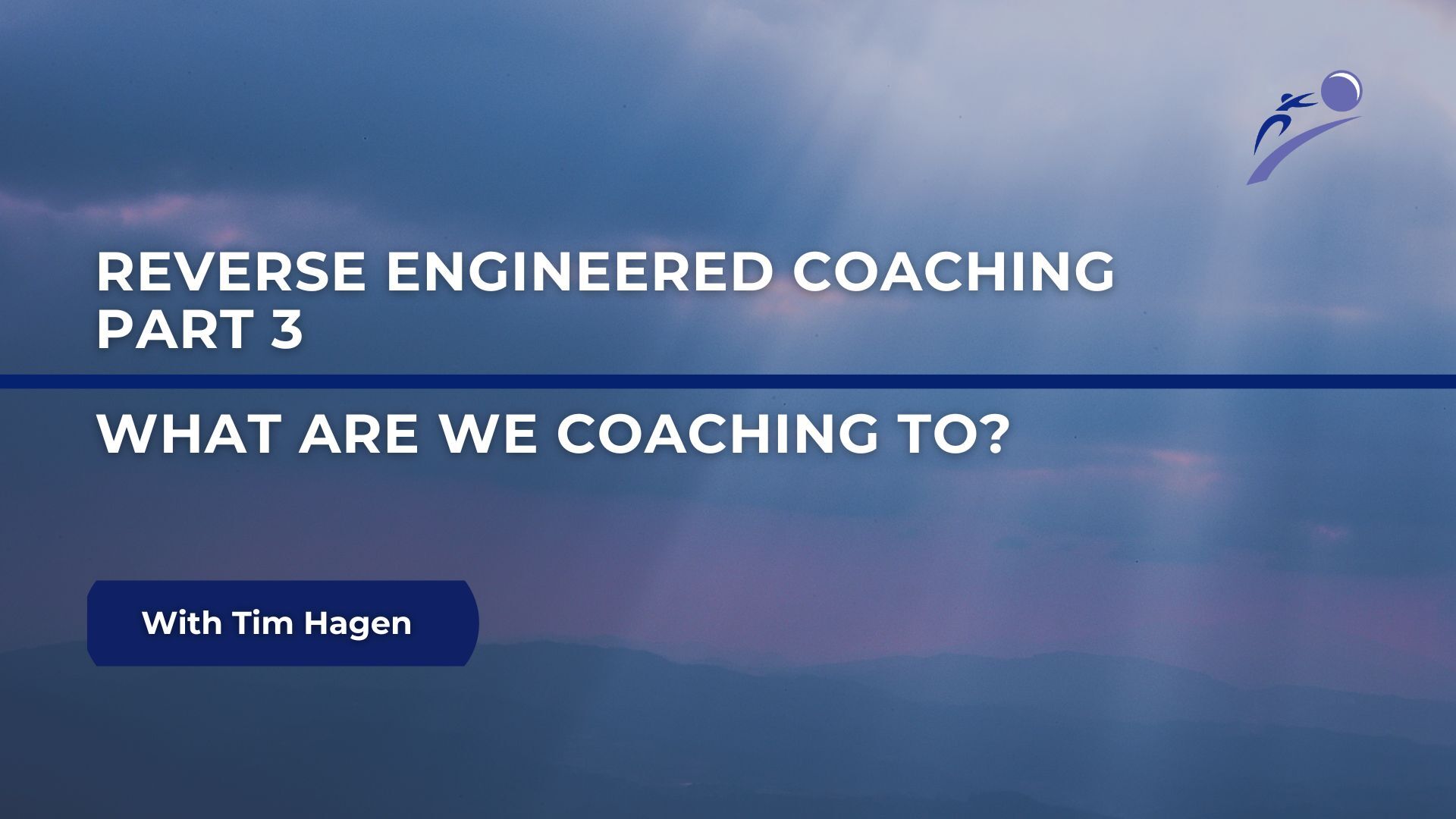Welcome to Reverse Engineered Coaching
For many years, we've had the battle of training leaders how to coach and training coaches how to coach. Yet coaches typically have a pretty specific objective: to provide coaching. Leaders and HR often get the objection that people don't have time for coaching. I've always laughed at that because when I think about it, while I'm sure the objection is real, I also think that objection masks another set of reasons of why leaders don't coach.
They don't know what to do. They don't know what to say. They don't know how to start.
Recently, we stumbled upon a methodology from four or five of our clients asking for information on their teams. Specifically, one who had a leader come to them who'd reprimanded one of their direct employees. When the manager asked their leader for insight on how to handle this, the leader looked at him and said, "Do you know what's going on with this person?" The manager said no. The leader had to inform the manager that the direct employee's spouse had stage four cancer. The manager had no idea.
This compelled the entire group to ask the question: Do we even really know each other?
I've always contended that most people in most organization don't.
Here's the methodology we have reverse engineered.
We should have social conversations every few weeks with an employee we don't know. Overall, it'll tighten the fiber of an organization.
We had another client talk about motivation and really understanding everybody's motivation. As we went around the table with a mid-level manager group, not one person could detail what motivated their employees. They had a fairly good grasp of what they wanted to do to motivate employees. That's motivating someone; that's not understanding their motivation.
Are they intrinsically motivated, as in do they love their job and they want to get better at certain parts?
Or are they extrinsically motivated, meaning are they motivated by what they're currently doing as an apparatus or stepping stone for something more?
Are they motivated by working in a collaborative team environment?
Or did they like to work on their own?
Nobody in that room of middle-managers could answer those questions.
I recently had an interaction with a financial services firm in a meeting with a person who I hadn't connected with before and we did one of our social coaching sessions. Through our conversations, we had a blast. Total connection.
Somebody might be seeing this with a reaction that coaching is not all about social connections or fun conversations. No, it's not. Yet this is where reverse-engineered coaching comes into play.
We had another client who asked how they can get better insights into what's going on out in the field with their sales teams. They wanted to have coaches for the coaches of their sales reps out in the field viewing those conversations (literally, in the field with their agricultural manufacturing sales reps out on commercial farms).
I cringed a little bit just thinking of those conversations. When I'm coaching a person, I don't want someone sitting there evaluating me. That tends to create a disingenuous environment. Instead, I came up with a different suggestion.
What if we told them the information leaders wanted to know?
We don't care how you get it, just go back to the person that you're coaching and we're going to ask them how you got it.
Why would we do it this way? Because they could simply go up to that individual without any real connection behind it and say "tell me your motivator, I have to fill out this form." Instead, they have to genuinely find out what that person is motivated by.
For our reverse-engineered coaching method, what we've done is we've itemized information that you know you need to get, and then we've created an apparatus to collect that information and provide visibility, not just to the coach who's collecting the information, but also to both the person they're actually coaching and to the coach's boss. There you have it: Fully scaled coaching.
Reach out to us if you want to hear about this and see this in action.
We stumbled on this truly different approach, which seems to be the missing crucial piece to coaching. We at Progress Coaching do so much training: cohorts called Coaching POD sessions, one-on-ones, practice sessions, constant prepping, and use several AI tools to help facilitate and track. There's a great company that measures coaching conversations called Interflexion. But I think we might have that missing piece of what exactly is it we are trying to learn. What if we told our leaders, "Here's what we need to know; go get it."
Reverse-engineered coaching.
Are you a leader who is struggling to find time to coach your team? Check out Coaching Nudges from Progress Coaching. This new service sends weekly coaching nudges to your team via text message and emails with little reminders to help engage and motivate them to address crucial topics such as great communication, teamwork and engagement. Try out a sample Coaching Nudge today.





